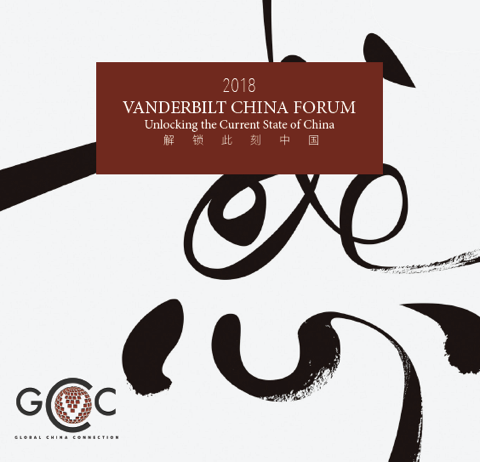Edited at 1:00 p.m.
*Names have been changed.
At universities throughout the United States, United Kingdom and Hong Kong, many Chinese students have been protesting Xi Jinping for his constitutional amendment that would allow him to stay in power indefinitely. In March, posters in Chinese and English proliferated at many university campuses outside mainland China, with phrases such as “not my president” and “I disagree” written across pictures of Xi Jinping’s face.
Believed to be run by anonymous Chinese university students through the Twitter account @StopXiJinping, the “Xi’s Not My President” movement became a medium for Chinese students studying abroad to discuss the implications of Xi’s constitutional amendment. Even for Chinese students studying at American universities, the subject remains difficult to hold open conservations over.
While the movement does not currently exist at Vanderbilt, organizations such as Global China Connection (GCC) have created platforms for Chinese students to discuss political events with each other, while interacting with the larger Vanderbilt community.
In particular, GCC’s first China Forum on Apr. 7 presented an opportunity for Chinese students to connect with future leaders and discuss topics on Chinese politics, philosophy, education, art and journalism. With its theme of “Unlocking the Current State of China,” the 2018 China Forum included a full-day agenda of speakers, panels and discussions. In addition, the China Forum gave undergraduates a chance to network with professionals and companies based in China, such as Embark China, Infervision, Veritas Academy and Ofo.
The forum’s keynote speaker featured Dr. Cheng Li, a senior fellow in the Foreign Policy program at Brookings Institution and a director of the National Committee on U.S.-China Relations.
“Dr. Li has a more moderate voice,” said Sam*, a Chinese student who attended the forum. “His viewpoints find a middle point that connects people.”
Li’s speech focused on “The Trajectory of the Middle Kingdoms and US-China Relations: A Paradox of Hope and Fear.” The “hope” mentioned lies in the economic growth of China during Deng Xiaoping’s leadership, with the establishment of age and term limits and regional bureaucratic representation.
Li’s “fear” involved Xi Jinping’s new era and political repression, viewing Xi Jinping’s tightening political control and his abolition of term limits as a threat to political freedom. Li identified three groups that serve as obstacles to Xi Jinping’s reforms: liberal intellectuals in China, Chinese political elites who appreciate Deng Xiaoping’s ideas and critics overseas – such as Chinese students studying abroad.
Many Chinese students use the social networking app WeChat (which functions similarly to Facebook) as a platform to discuss events such as Xi Jinping’s constitutional change.
According to Sam, WeChat is the most popular way to receive news in China; while the app is monitored to some extent, she uses WeChat to discuss political events with her friends both in China and at American universities.
“Many of my friends are angry about how easily the Constitution can be changed without a rigorous examination of the impact,” Sam said. “People were scared that China will go back from a lot of the progress it’s made since its pre-revolution stage.
[aesop_quote type=”pull” background=”#282828″ text=”#ffffff” width=”500px” height=”200px” align=”right” size=”2″ quote=”“Many of my friends are angry about how easily the Constitution can be changed without a rigorous examination of the impact."” parallax=”off” direction=”left” revealfx=”off”]
According to Sam, the initial reaction to Xi Jinping’s constitutional change was an emotional one. Later, Sam saw her university friends develop two schools of thought on the change.
“Our world is currently under the narrative that the world is powered by the West, and that’s how every country should play the game,” Sam said. “However, this can be a new way to rule a strong country. Maybe democracy is not the best way, and Chinese characteristics can be good.”
According to Sam, this Western narrative argument has become more popular in the past couple of years, especially among Chinese students who have graduated from elite American universities and returned to China to start careers. After a technological boom in the twenty-first century, many Chinese students are excited about economic changes in China, which they believe could not be possible without strong one-party growth.
According to Sam, the second reaction she has noticed in her network is a worrying one; if Xi Jinping can change the Constitution, it means that other leaders can easily change it as well.
“Xi Jinping made a lot of changes in China after 2012,” Sam said. “The Party got rid of a lot of bad influences and emphasized the judicial branch. Xi’s next steps are to strengthen military power and solve territorial issues. People think that he wants to solve that within his own time. If we have a weak leader after Xi, the progress he made will not be accomplished. But the change risks a sad prospect. The very institution he wants to change is weakened by his own act.”
According to Sam, her peers in the Vanderbilt Chinese community are less politically vocal than Chinese students in other top universities. While GCC’s China Forum presented an excellent opportunity to discuss political issues, Sam hopes that continuous and informal conversations will spark a general interest in Chinese politics.
“So many things can be changed in the next five to ten years, that no one wants to be super vocal without really knowing what’s happening,” Sam said. “There’s no right answer at this point, but worry and uncertainty is moving on everyone’s hearts.”
[aesop_quote type=”pull” background=”#282828″ text=”#ffffff” width=”600px” height=”200px” align=”left” size=”2″ quote=”“So many things can be changed in the next five to ten years, that no one wants to be super vocal without really knowing what’s happening."” parallax=”off” direction=”left” revealfx=”off”]

